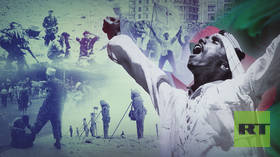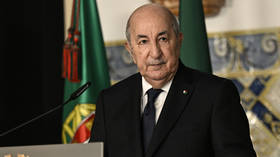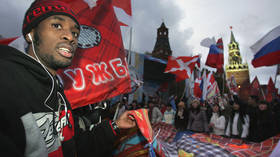‘We have provided everything possible for their freedom’: How the USSR helped France’s most important colony stick it to Paris

In early 2024, Moscow announced that it intended to establish a Russian House in Algeria, where both expatriates and local residents will be able to study the country’s language and culture. In recent years, the need for such a cultural center has grown, since thousands of Russians reside in Algeria (many of them have lived there since Soviet times) and Algerian young people are showing increasing interest in the culture.
During the Soviet period, the communist state educated many Algerian politicians, trained its military personnel, and armed the country’s air force and navy. The Algerian Army owes much of its professional success to Soviet and Russian military schools and academies, where more than 60,000 of its servicemen were trained between 1961 and 2023.
Thousands of Algerian specialists from various fields and industries were educated in the USSR. Many returned home with their Russian wives and children. In such multicultural families, the Russian language and culture have been passed on from generation to generation.
More than 1,000 Russian women live in Algeria today. In 1989, the Coordinating Council of Russian Compatriots created the Association of Russian Women Compatriots in Algeria, which unites women from Russia and the former USSR republics.
“The Association’s main goal is to preserve the Russian language and Russian traditions. Every year, we hold conferences which are attended by women from other cities of Algeria. This brings us closer to each other, we learn about the lives of our compatriots in other Algerian cities, about their success and their problems,” its website states.
How the USSR supported Algeria’s fight for independence
The Soviet Union was the first country in the world to establish diplomatic relations with Algeria. This happened in March 1962, four months before Algeria officially declared its independence from France.
The USSR had de facto recognized Algeria two years earlier. On October 3, 1960, during the 15th session of the UN General Assembly in New York, USSR Secretary General Nikita Khrushchev met with members of the Algerian government. Several days later, he said this meeting had signified that the USSR had recognized the provisional government of the Algerian republic.
“We, the Soviet people, sympathize with all the colonial nations that are fighting against the colonialists for their [country’s] independence. How can we exclude the great Arab people who are fighting for their independence, for their freedom? We applaud their fight. We have provided and will continue to provide all the possible assistance that may help the Algerian people in the struggle for their independence, for their freedom,” Khrushchev said at the time.
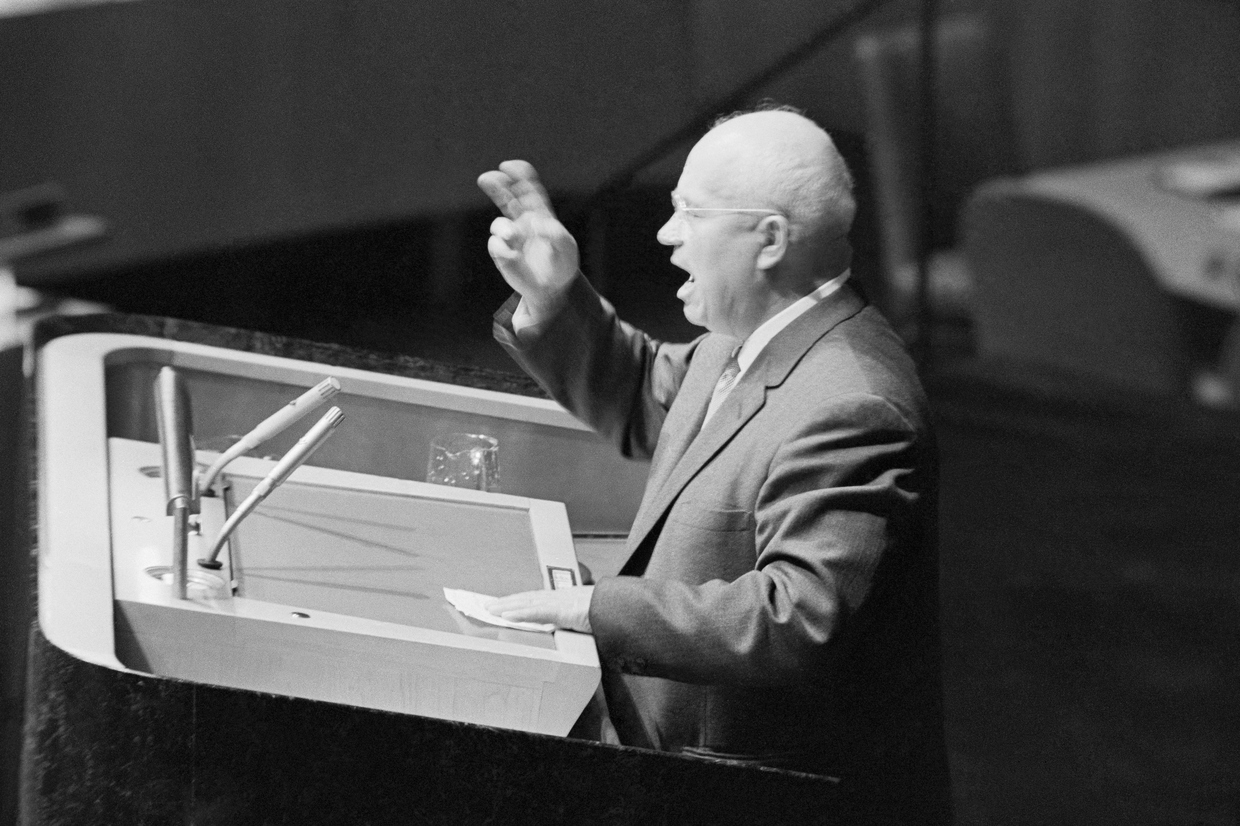
From the start of the Algerian war of 1954-1962 against French colonialism, the USSR supported the Algerian people. The Soviet Union spoke out in defense of Algeria at the UN and various international forums, provided financial, material, and military assistance, and organized various solidarity campaigns.
Demining
“And then, Algeria called me to demine the country. Volunteers – step forward! Everyone stepped forward, not just me,” sang the famous Soviet singer Mark Bernes in the song ‘Memories of Algeria’. Between 1962 and 1964, the Soviet Army demined large territories of the newly independent Republic of Algeria. Unfortunately, these accomplishments have been largely forgotten in present times.
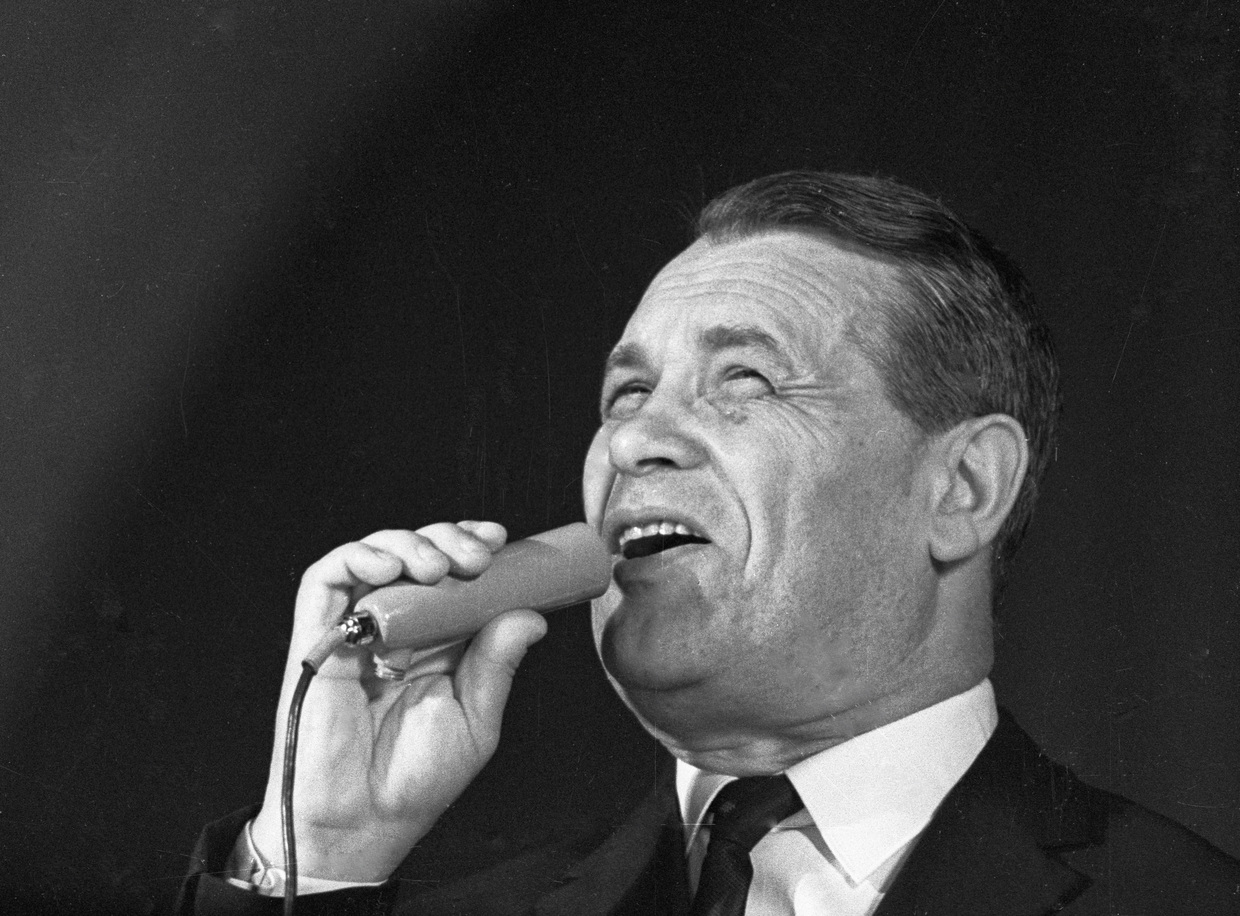
In 1962, the provisional government of Algeria and France signed the Evian Accords – peace treaties which also granted Algeria the right to self-determination. After a nationwide referendum on July 5, Algeria officially declared independence. However, there was a lot of work ahead since Algeria’s economy was seriously affected by the war, and French specialists left the country en masse. In the aftermath of the colonial era and the eight-year war, Algeria was in great need of assistance.
On leaving Algeria, France also left behind thousands of mines. The most heavily mined territories were on the border with Morocco and Tunisia (the so-called “Lignes Challe et Morice”). In 1959, large parts of these territories were blocked by minefields, observation posts, and electrified wire barriers. However, France had no intention of cleaning up after itself.
Since Algeria didn’t have qualified sappers, it first requested help from several European countries (Italy, Sweden, Germany), but they refused to help. Private companies didn’t help to solve the problem either. For example, a group of Italians headed by retired general Ipolito Armando started demining the territory, but stopped when several people from the group were killed in mine blasts.
Then, the Soviet leadership stepped in and agreed to demine the territory free of charge. On July 27, 1963, an agreement was signed between the two countries. Two groups of specialists from the USSR arrived in Algeria in the period from 1962 to 1965. In this period, Russian sappers defused about 1.5 million mines, clearing over 800km of mine strips and 120,000 hectares of land. Each sapper defused between 10,000 and 15,000 mines. Some of them never made it back home and many remained crippled. On their return, most of the sappers received Soviet government awards.
Soviet specialists in Algeria
Sappers weren’t the only specialists to arrive in Algeria from the USSR. In the 1960s and 1970s, thousands of Russian specialists came to Algeria and stayed there for many years. Some of these people permanently settled in Algeria and their descendants still live there.
On gaining independence, Algeria chose a socialist course in domestic politics and actively established international relations. In the first two decades following its declaration of independence, Algeria closely cooperated with the USSR in the fields of economics, politics, and culture, and the two countries frequently exchanged delegations at various levels.
Economic cooperation with the Soviet Union and other countries of the socialist bloc encompassed almost all areas of Algeria’s economy. The large number of Soviet specialists who came to Algeria greatly contributed to the development of the local economy. The USSR helped Algeria with mineral exploration, building large industrial enterprises, and training engineering and technical personnel. For example, El Hadjar Complex, built in 1968, became the largest steel plant in Africa.
The Soviet Union helped develop the mining and non-ferrous industries in Algeria, particularly when, in May 1966, Algeria announced the nationalization of all mining enterprises and foreign engineers left the country.
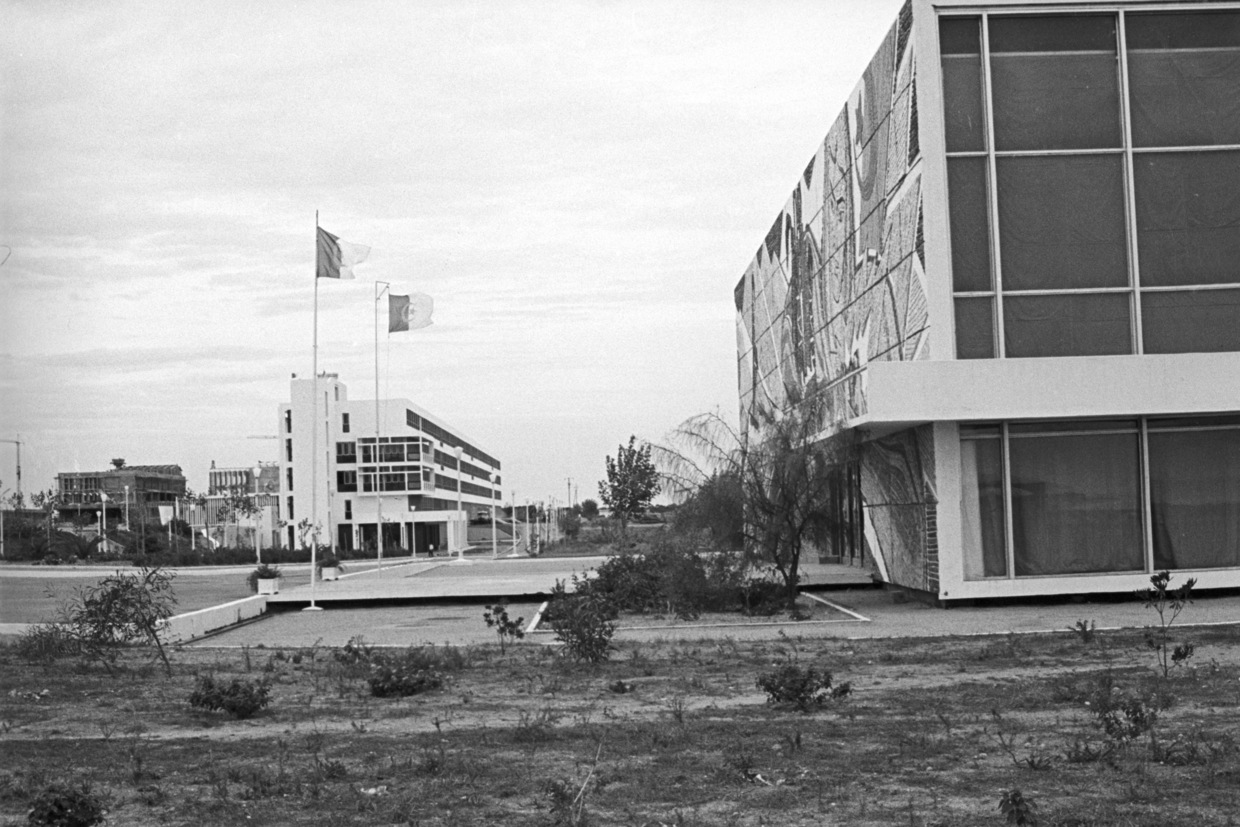
At the request of the People’s Democratic Republic of Algeria, the USSR, Bulgaria, and other member countries of the Council for Mutual Economic Assistance sent their specialists to Algeria, and the nationalized mines continued to operate. Thanks to this assistance, Algeria increased the extraction of iron, lead, and zinc ore.
Cooperation in the energy sector has always been important for Algeria, and has provided the country with foreign exchange earnings. Throughout the 1960s and 1970s, Soviet specialists worked at the Algerian state oil and gas company Sonatrach, and the USSR supplied drilling rigs for geological exploration sites.
Soviet agronomists and hydrogeologists helped boost irrigation and water supply, and increase the area of cultivated land. The USSR built two irrigation dams in Algeria. Soviet hydrogeologists also headed complex groundwater research in the country’s southern desert regions, which occupy about 80% of Algeria’s entire territory. In just four years, Soviet experts were able to identify 25% more water reserves than the French had managed to do in the 130 years they spent in Algeria.
The USSR also provided comprehensive assistance in the field of education. In 1964, the Algerian Institute of Oil and Gas was established in Boumerdès and presented to the city as a gift. Thanks to Soviet specialists, Boumerdès, a city in the north of Algeria , became a major educational and scientific center. The National Institute of Light Industries was also established there.
The Mining and Metallurgical Institute was built in Annaba, and the Hydrometeorological Institute was established in Blida. The professors of the main subjects were selected from various USSR universities and sent to Algeria. Between 1956 and 1978, more than 800 Algerian specialists were trained in educational institutions established by the USSR.
Military cooperation between the USSR and Algeria has always been important as well. The USSR (and later Russia) was Algeria’s main supplier of weapons and military equipment. In the late 1970s, the Algerian Army possessed 350 tanks and 294 combat aircraft, and approximately 95% of this equipment was produced in the USSR. From 1962 to 1991, the Soviet Union supplied Algeria with a variety of weapons with a total value of around $10 billion.
In December 1963, a cultural cooperation agreement was signed between Algeria and the USSR. Strong cultural ties were established in the fields of cinematography and literature, and many Soviet music ensembles and other artists performed in Algeria. The Russian language was taught in several Algerian universities.
Many Russian specialists who stayed in Algeria for a long time brought their families along with them. Algeria had schools and even pioneer summer camps for Soviet children.
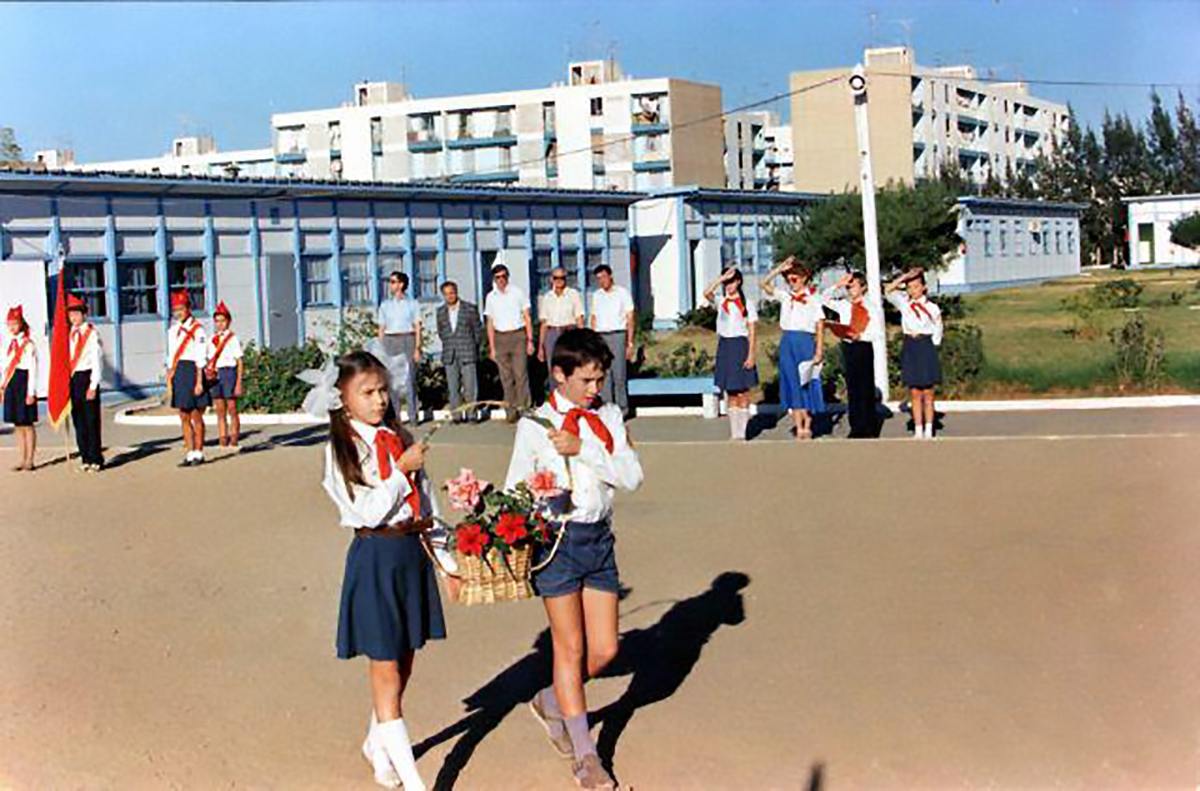
For example, the USSR Embassy established one such pioneer camp on the shores of the Mediterranean Sea, near the picturesque town of Tipaza, which boasted Phoenician, ancient Roman, early Christian, and Byzantine architecture. The cultural program for children included swimming, beach volleyball and football, Neptune Day, and tours to the nearest Roman cities and tombs.
Present times
From the mid-1980s to the early 2000s, relations between Russia and Algeria declined in light of an economic and political crisis. In 1991, following the collapse of the Soviet Union, Algeria officially recognized the Russian Federation. Bilateral relations entered a new stage at the start of the 21st century.
In April 2001, then-President of Algeria Abdelaziz Bouteflika traveled to Moscow on an official visit, which resulted in the signing of the Declaration on Strategic Partnership between Russia and Algeria. Currently, 14 intergovernmental agreements, as well as around 30 protocols, cooperation programs, and memoranda are in force between the two countries. Political dialogue is maintained at the highest level.
The strong ties between Russia and Algeria have also ensured warm relations between its peoples. To this day, many Algerians remember with gratitude the help which the USSR provided to the young country in its first decades of independence.
